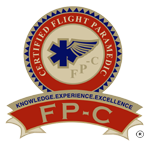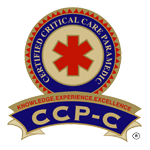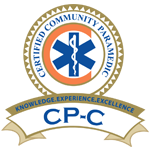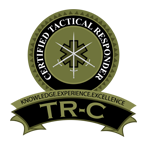Value and Benefits of a Paramedic Certification

Flight Paramedic Exam Preparation (FP-C)

Critical Care Exam Preparation (CCP-C)

Community Paramedic Exam Preparation (CP-C)

Tactical Paramedic Exam Preparation (TP-C)

Tactical Responder Exam Preparation (TR-C)

Designation Infection Control Officer Exam Preparation (DICO-C)

Medical Transportation Safety Professional (MTSP-C)

Wilderness Paramedic Exam Preparation (WP-C)
Purpose of Certification through Examination
Certification, in general, is the mechanism in which both the public and employers are able to identify practitioners who have met specific standards in their particular specialty. The IBSC exams and certification examinations are specific to specialty practice measuring mastery of a defined body of knowledge pertinent to that particular specialty. A role delineation study is conducted approximately every five years to assure the certification examination reflect current specialty paramedic practice. IBSC certification examinations are recognized world-wide though they are based on best practices and scope of practice commonly found in the United States.
Nearly all professions certify members in some way. But there is still some confusion about what certification is, and what it is not.
Certification is:
- A voluntary process
- Offered by a professional organization
- For the purpose of providing the public information on those individuals who have successfully completed the certification process and demonstrated their ability to perform their profession competently.
Certification is NOT:
- A verification of course completion
- A substitute for education or practical experience
- A guarantee of employment, professional privilege, permission to practice, or respect
Benefits Specialty Certification
- Validation of unique paramedic expertise
- Career advancement opportunities
- Monetary differentials
- Employees working for CAMTS accredited medical transport programs are required to obtain their FP-C or CCP-C certification witin two years of hire.
- Assures both the general public and employer that the certificant is competent and current.
- Can be used as a marketing tool, i.e., Our flight program is staffed by certified flight and/or critical care paramedics.
- Will result in employing high-acheiving paramedics resulting in higher patient satisfaction rating, and are members of a highly functioning team.
- In a recent survey, specific healthcare providers who were certified were found to be generally high achievers, had a higher self-esteem, and sought opportunities for professional growth. These are providers that want to know the latest information in health care and take pride in the care they deliver. This is a valuable asset for the institution in which they are employed.
- Employment - Every agency or program would like to hire a knowledgeable paramedic to fill a position. With any IBSC credential, the interviewing institution knows this and gives more consideration to the candidate.
- Financial rewards - One indication that certification is recognized by various institutions across the United States is through financial incentives. Several Air and critical care transport programs now pay additional hourly or receive a yearly bonus for their specialty certification.
Benefits to the Employer
- Possible enhanced reimbursement (state and jurisdiction dependent)
- Objective standard for clinical benchmark
- Ready and reliable standard of employee qualification
- Public assurance of professional care
- Skills and knowledge based on nationwide critical care task analysis
